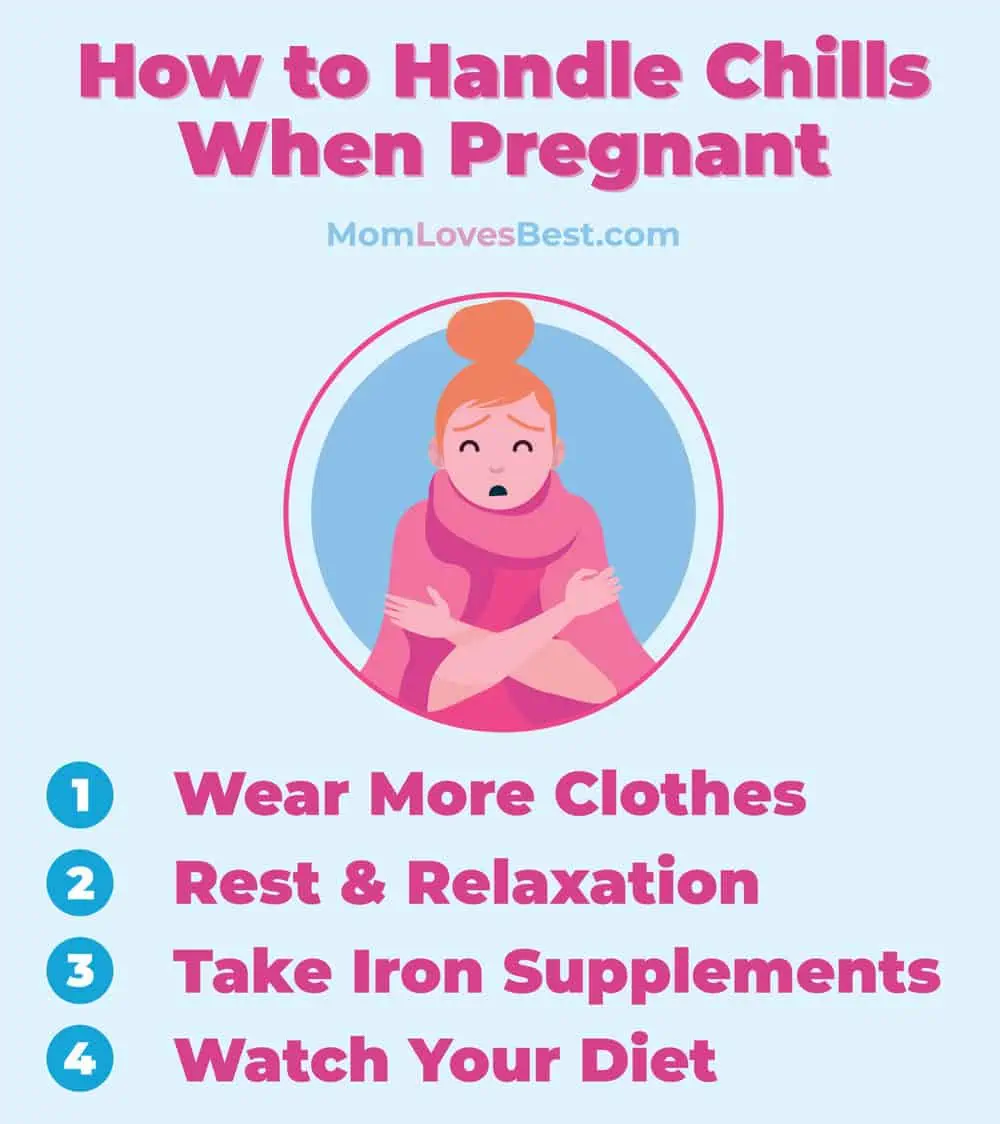You probably expected to feel like a walking furnace while pregnant. So, why are you reaching for a sweater in the middle of July?
While “buns in the oven” are notorious for raising body temperature, feeling cold is actually a common complaint. From hormonal shifts to circulation changes, your internal thermostat goes on a wild ride during these nine months.
We’ll break down why you might be shivering, how to warm up safely, and when a chill might signal a need to call your doctor.
Key Takeaways
- Common causes: Feeling cold often stems from hormonal fluctuations, anemia, morning sickness, infections, or thyroid issues.
- Timing: Chills are most frequent in the first trimester but can happen anytime.
- Quick fixes: Layer clothing, stay hydrated, rest, and ensure you’re eating frequent, nutrient-dense meals.
- Not a diagnosis: While temperature shifts happen in early pregnancy, feeling cold isn’t a definitive sign of conception.
Is Feeling Cold During Pregnancy Normal?
You’ve likely heard that pregnancy turns up the heat. For many women, that is true; increased blood volume and a faster metabolism usually make things toasty.
However, feeling cold is just as normal. Pregnancy isn’t a one-size-fits-all experience. Your body is working overtime to support a new life, and that effort can manifest in surprising ways, including chills or generally feeling colder than usual.
Reasons Pregnant Women May Feel Cold
Feeling chilly is often a side effect of the massive construction project happening inside your uterus. However, since you are responsible for two (or more) lives right now, it helps to know exactly what triggers the shivers so you can rule out health concerns.
1. Anemia
Iron deficiency anemia is a frequent flyer during pregnancy. This happens when your blood lacks enough healthy red blood cells to carry oxygen effectively to your tissues.
Think of red blood cells as your body’s heating fuel delivery trucks. When there aren’t enough trucks, your internal heating system struggles, leaving you with cold hands and feet. You might also feel exhausted, dizzy, or pale. Since pregnancy fatigue is common, anemia often goes unnoticed until a blood test catches it.
2. Hormonal Changes
Your hormones are doing a massive renovation on your body. Spikes in progesterone and estrogen can wreak havoc on your autonomic nervous system, which controls temperature regulation. While these shifts often cause hot flashes, they can also swing the other way, leading to sudden chills.
3. Morning Sickness and Nutrition
If you are battling nausea, you probably aren’t eating as much as usual. When your calorie intake drops, your metabolism slows down to conserve energy, which generates less body heat.
Additionally, morning sickness can lead to dehydration. Water helps regulate body temperature, so if you can’t keep fluids down, you might feel colder. Proper nutrition acts as fuel for your furnace; without it, the fire dies down.
4. Infection
Even a low-grade fever can trick your body into feeling freezing cold. Chills are a common symptom of urinary tract infections (UTIs) and kidney infections, both of which require immediate medical attention during pregnancy. If your chills come with fever, pain, or burning sensations, call your provider.
5. High Basal Body Temperature
In the very early weeks of pregnancy, your basal body temperature remains elevated. It sounds counterintuitive, but when your internal temperature set-point is higher, the air around you feels comparatively colder. This can trigger chills similar to the onset of a flu.
6. Hypothyroidism
Your thyroid is the master control center for your metabolism and temperature. If your thyroid is underactive (hypothyroidism), it doesn’t produce enough hormones to keep things running at full speed. This can leave you feeling perpetually cold, tired, and sensitive to low temperatures.
Keep In Mind
Are Chills Normal Throughout Pregnancy?
Yes, though the timing varies. Most women experience chills during the first trimester due to the initial hormone surge and nausea-related calorie deficits.
However, the hormonal rollercoaster doesn’t stop at week 12. You might experience temperature fluctuations right up until delivery. As long as they aren’t accompanied by fever or severe pain, they are usually just another quirky pregnancy symptom (2).
How to Handle Chills When Pregnant
If you are tired of shivering under three blankets, here are some safe ways to warm up.
- Layer up: It’s the simplest fix. Keep a cardigan handy and wear breathable layers. Maternity leggings under pants or thermal tops can trap heat effectively without making you sweat if a hot flash suddenly hits.
- Prioritize rest: Fatigue makes you more sensitive to cold. If you are struggling to sleep at night, try to squeeze in a nap. A warm (not hot) bath can also help relax your muscles and raise your body temperature.
- Check your iron: If your doctor confirms anemia, taking iron supplements is a game-changer. Iron helps your blood carry oxygen more efficiently, warming you up from the inside out. Always ask your provider before starting new supplements.
- Fuel your body: Your metabolism needs energy to generate heat. Focus on a balanced diet with complex carbs, proteins, and healthy fats. Staying hydrated is equally critical for temperature regulation.
Is Being Cold a Pregnancy Symptom?
Technically, yes. Some women report feeling “flu-like” chills before they even get a positive test.
This happens because your metabolism kicks into overdrive immediately after conception. However, feeling cold can be caused by a dozen other things, from a drafty room to a coming cold.
While temperature changes are a valid early sign, they aren’t definitive proof. If you suspect you’re pregnant, a test is the only way to know for sure.
Remember
FAQs
The Bottom Line
Feeling cold now and then isn’t usually a reason to panic. It’s often just your body reacting to the massive hormonal and metabolic shifts of pregnancy. Grab a blanket, eat a snack, and rest up.
However, if the chills are constant, severe, or accompanied by a fever, give your doctor a call. Whether it’s a simple case of anemia or a sign of infection, getting checked out gives you peace of mind and keeps your little one safe.











